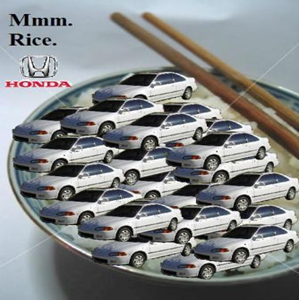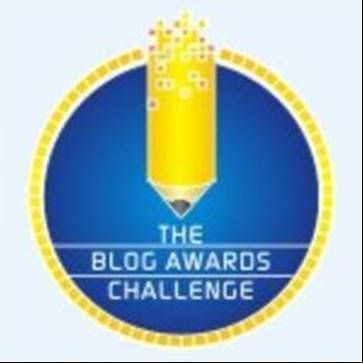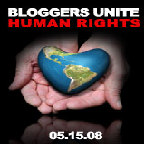There are many types of “who” we used in our everyday conversations with ourselves and with others. Be careful in using this who as they form personalities of their own. Below is a list of those I'm so familiar of.
Who is ...
The game-show-contestant's who. A type of who which if followed by a correct answer advances one to the height of pride as it marks the range of his adventures in knowledge hunting beyond answering the “Who is your father?” question. The range includes facts like who is the first person to walk on the moon, fiction like who is Harry Potter's best friend, gossips like who is your playboy neighbor's current victim, and wild guesses like who is the president of Antarctica. Imagine the pride of answering these questions. But imagine also the effect it might bring especially if it is a gossip.
Who am ...
The I-factor's who. A rustic expression of introverted confusion, rather amicable to those with a built-in identity crisis. This type is good if taken lightly as it forms part of managing measurements but pushes one down to nothingness if kept being dug from personal to scientific, philosophical and even spiritual realms. So I had discussed it that lightly to avoid culturing confusion. Done.
Who will...
The non-involve's who. This is the who which wishes everyone else to do the job but automatically exempts himself. The sad fact about this who is its mostly heard from parasites who just wait for others to do group assignments and share with them the gains. Occasionally this is a type of who individuals are also supported by martyrs who has a philosophy “If I won't do it, who will?” and they form a parasite-host relationship. Who likes parasites? Re-phrase... who likes hookworms in their intestines? Yuck!
Who cares...
The bully's who. An aggressive who against the unkindness of others probably for freak show, fun or profit. But listen, the one who uses this is unknowingly bitten back by his self-made question. By asking it, doesn't he sound unkind too? Ear shot to the bullies! Enough, as I might become one if I discuss more on this.
Who done...
The blamer's who. The pointing finger type of who towards people whom the speaker thought have done a crime-like action. Very familiar to crime novel fans (whodunit). An example is: Who made the prices of the basic commodity rise again? The vendors will point to the unreasonable transport fare. The drivers will point to the Pinoy Gas Brothers who has been monopolizing the Philippine oil economy or the whole economy in the past two decades. But the Gas Brothers will again point to the crude oil price hike in the Middle East due to the US-Iraq forever-until-US-gets-all-the-oil tension. Before the US will blame China for sucking much of the world's oil due to its extra large population, I will stop this cycle of blame. I don't know China, I don't know US, I don't know Shell, Petron or Caltex, so I am not also sure if the sentences above are true but they have crowded the news ever since I started to read newspaper and watch TV. And I don't like the cycle of pointing fingers as they end up pointless. I am guilty of using this occasionally, with remorse of course.
Who else...
The nice guy's who. The who which at its best is followed by “.... are out there?” Here's a story about "who else" I like to share. I am facing a crowd of people and monsters. I noticed an angry-looking young boy with short brown hair in a wizard costume casting ice and lightning spells alternately against a running red tree trunk. He kept on dying and resurrecting back to where he started, and runs again to where he had been casting spells and dies again. He wondered how not to get killed. He noticed the rest of the crowd. They fight in groups of twos or threes a
I am facing a crowd of people and monsters. I noticed an angry-looking young boy with short brown hair in a wizard costume casting ice and lightning spells alternately against a running red tree trunk. He kept on dying and resurrecting back to where he started, and runs again to where he had been casting spells and dies again. He wondered how not to get killed. He noticed the rest of the crowd. They fight in groups of twos or threes a gainst monsters and they don't die that soon. He realizes that the groups have the usual combination of powerful spells casting yet physically weak mages and non-combatant yet high vitality, self healing acolytes. They shared energy, they leveled-up together. It was fun to look at their happy emoticons popping out after they killed monsters larger than just a running red tree trunk. That boy just knew the wisest thing to do then.
gainst monsters and they don't die that soon. He realizes that the groups have the usual combination of powerful spells casting yet physically weak mages and non-combatant yet high vitality, self healing acolytes. They shared energy, they leveled-up together. It was fun to look at their happy emoticons popping out after they killed monsters larger than just a running red tree trunk. That boy just knew the wisest thing to do then.
I tell you that this story is true, and that the crowd of people and monsters with a lonesome boy is what exactly I saw, and that brown-haired boy was my Ragnarok character I am facing through the desktop screen. In real life despite how many times I leveled-up, I remained a novice in life, simply because I seldom try to participate as part of a group, I either leave my groups or work as in one-man group. How could that be a group, Oh, forget word play. How could be working alone be satisfying? Anyway its only after playing Ragnarok, what a shame at age of 20+, that I have realize the need to share energies. I like who else as in “who else are out there,” weather it means “who else can help us” or “who else can we benefit” or “who else are affected by what we are doing,” it is a sign that we recognize the presence of other people.
What type of who person are you? Be careful with the “who personality” evolving in you. Remember, you are not living alone, and that your work and worth affects another.
This post is first of a 7-part ellipsis series.








Thanks for linking to me! I really appreciate that. :D
ReplyDeleteI notice you have some outsourcing experience.I have a call center blog also. it's www.callcenterveteran.blogspot.com. I'd love it if you can check that out too (if you haven't yet )
Come join us in technorati... And thanks again!